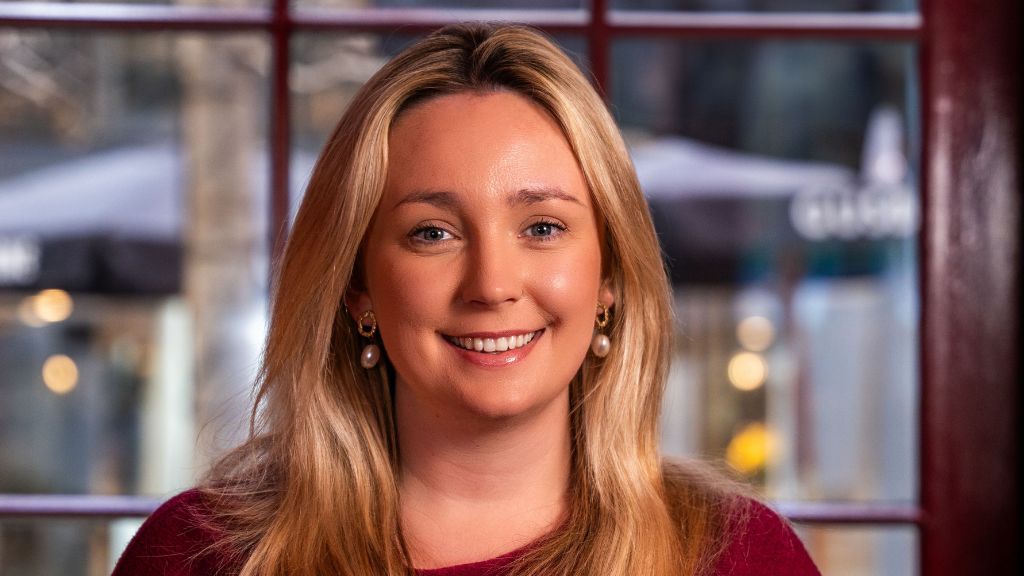Policy young guns

Townsend Communications’ managing director, William Walter, meets Care England’s policy team to learn about how it’s transforming the organisation’s efforts to inform policymaking and champion its members’ needs externally
Formed in April last year following the departure of both Care England’s director of policy and external affairs advisor, the organisation’s dedicated policy unit represents a significant step change in the body’s approach to thought leadership and external engagement.
Despite its relative infancy, the team hasn’t been hanging around. Led by George Appleton (and reporting to chief executive, Professor Martin Green), it has already notched up some impressive wins. In May last year the policy unit played a crucial role in Care England’s successful efforts to lobby for an 11.5% uplift for 2022-23 for Funded Nursing Care as well as a backdated Covid payment for the period 2021-22.
More recently, the team instigated the second round of the Care England Energy Tender aimed at reducing energy costs for care providers across the country. As our interview begins, I’m struck by the enthusiasm and diversity of the youthful team. The team of six come from a broad range of backgrounds ranging from Parliament and academia to working with children with SEND.
Yet, despite their diverse backgrounds, it’s obvious they’re all united by a genuine passion and enthusiasm for their work and social care more broadly.
Head of the policy team, Appleton, emphasises how the sector is “at its heart, a human sector often made up of some of society’s most vulnerable”.
Despite this, he says, “the sector is often not given the societal or political attention that it deserves or requires”.
Their work helps to address this. Senior policy officer Abigail Moir explains how, driven by the needs of its members, Care England’s work is to support providers to reduce their costs and ensure sustainability for the sector. The policy unit’s work feeds into this.
Policy manager Louis Holmes breaks down the team’s work into five main strategies or streams: delivering sustainable funding for the sector; ensuring fair and sustainable pay levels for care workers as well as appropriate training and career paths; facilitating the digital transformation of the sector; ensuring proportionate regulation; and, lastly, making sure its members have a voice in guiding the strategic integration of health and social care services.
Policy officer Charlotte Lezard talks about how the team’s work is both “reactive” and “proactive”. Its reactive work, she says, “is to ensure that the voice of care providers is heard within the debate when stories arise”.
Meanwhile, their proactive work “is focused on ensuring that the sector remains a top priority not just on the political agenda, but also in the media”.
“We keep a strong presence on social media, such as our LinkedIn and Twitter, we speak at conferences, we write articles and columns for the sector trade press and we do television and radio to highlight important issues,” she explains.
The organisation also channels significant resources into generating original research reports. Ioan Bishop, Parliamentary affairs officer, tells me how its recent findings published in the ‘Sector pulse check’ report, produced in partnership with the charity Hft, provided a “snapshot of the finances and workforce of the adult social care sector”.
He adds that “the project revealed that one-third of providers, including nearly half of smaller organisations, considered exiting the market in 2022 as a result of the financial pressures facing the sector”.
Despite the findings the study uncovered, he remains positive that it will offer a “blueprint for reform” to help alleviate the challenges facing the sector. The report has been well received, with the group recently hosting a round table with the All-Party Parliamentary Group on Adult Social Care, led by Damian Green MP, to discuss the implications of the findings.
Our research discussion segways into the importance of data to the team’s work. Despite the sector being data rich, data collection and analysis in adult social care is not without its difficulties, they tell me.
Care England has previously emphasised the importance of collecting data to get meaningful results. But, as Appleton notes, “central mechanisms” have been shown to be “flawed” as “adult social care providers put data into a system but often never receive anything back”.
Holmes says “better collection and use of data could have a significant positive impact, particularly in terms of wellbeing and care models at an individual level”.
The group has also been involved in the advancements of a ‘capacity tracker’, as well as a ‘national minimum data set’ working alongside the Department for Health and Social Care to help progress data collection.
One of the sector’s main struggles is funding, and therefore most of the research that care providers produce is funding-related. Care England uses its market intelligence system MINT to identify the critical funding issues that providers face.
Policy officer Fraser Rickatson discusses how the portal “hosts important financial data within the sector, including both historical and current fee rates for every local authority across older persons and learning disability sectors”.
“An example of utilising this data was our Fair Cost of Care Analysis, where we identified that local authorities in England were underfunding older persons residential and nursing care homes by over £2 billion per annum during 2021 and 2022”, he says.
The group was able to use this analysis to identify the areas of concern for a regional and local approach to support not just its members, but the whole sector.
Promising progress is also being made in terms of data and artificial intelligence. Holmes reports on the “natural language processing” of AI to understand someone with severe learning disabilities, which the Care Quality Commission has also shown interest in. It has allowed for a growing “understanding of pain within communication for those who don’t necessarily have the capabilities to display it in a ‘typical’ way”.
Additionally, this technology has the potential to complement current models of care for residents with severe dementia.
Appleton adds: “Care England has recently launched an integrated care system membership to drive conversations between social care providers and their healthcare colleagues.
“The running of regional round tables to foster relationships has helped to facilitate the objective of a collaborative sector.”
We discuss the future direction of the policy team and I’m told that this will follow the needs of Care England and, ultimately, its members.
As our interview concludes, I’m impressed with the energy and focus the team has. I anticipate it will play a crucial role in informing policymaking for the sector both in the lead up to the general election and beyond.




